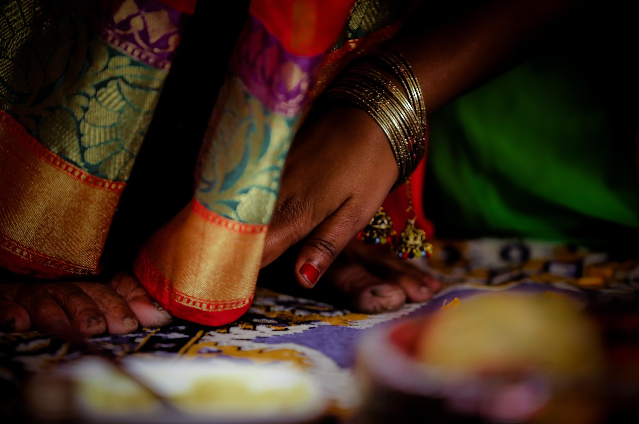
An individual faces dominance many times throughout life, but the very first dominance often comes not from outsiders, but from family members. The most common form is hierarchical authority based on age, where age alone automatically places someone “above” you in decision-making, moral judgment, and even personal choices. This is especially common in traditional or collectivist cultures.
In such families, age becomes a permanent trump card over logic, facts, or personal experience. Any disagreement is dismissed with the statement that elders have “lived longer and know better.” While elders certainly deserve respect, in these cultures, respect is fused with obedience. Respect means complete agreement and instant compliance. Questioning an elder is equated with disrespect, leaving no space for discussion.
This turns respect into submission rather than mutual regard. Elders expect their feelings, pride, and comfort to be prioritised over yours. Your emotions are seen as “less important” because you’re younger and “still learning.” From career paths to marriage decisions, they often feel entitled to influence—or even dictate—choices “for your own good.” The unspoken belief, “I’m responsible for your life’s direction because I’m older and I care,” dominates, giving elders unchecked authority.
Elders may criticise freely but rarely accept criticism themselves. Society reinforces this, promoting fear-based obedience rather than correcting it. Families often worry more about “what people will say” if elders are challenged than whether the elder is actually right. This pattern, rooted in older times, still lingers—though times have changed, the belief hasn’t.
The Origin of This Belief
In ancient, pre-industrial societies, elders were often knowledge banks. They had lived through famines, wars, and harsh climates, and survival often depended on their experience—knowing when to plant crops, how to cure illness, or how to avoid danger. Questioning them wasn’t just rude; it could risk the community’s safety. Respect back then wasn’t only politeness—it was trust in the only source of guidance available.
Elders were also leaders in village councils and tribal groups. Their authority kept order in tightly knit communities. Over generations, this became ritualised and moralised, solidifying into a cultural law: “Older means wiser, wiser means leader.” Because younger people had fewer chances to prove themselves or access knowledge, the hierarchy remained unquestioned.
Even as society modernised, schools spread, and the internet made knowledge accessible to everyone, this age-based hierarchy stayed embedded in family systems. What began as a survival necessity turned into a cultural habit, a symbol of “how things should be.” Respect for elders shifted from being about wisdom to being about status.
Wisdom Turned into Power
In traditional households, elders often controlled land, resources, marriages, and family decisions. Their authority wasn’t symbolic—it directly affected whether younger members had food, shelter, or social standing. Challenging them meant risking survival itself. What began as respect for wisdom slowly hardened into rigid obedience.
As societies evolved, elders not only guided but also governed. Respect turned into obedience. Obedience turned into fear. Questioning was no longer seen as seeking clarity, but as rebellion. Disagreement became an attack on the family’s honour. Authority shifted from wisdom-based to power-based, with society rewarding obedience and punishing defiance. Even when elders’ opinions were outdated, their words carried more weight than facts. Silence became safer than truth.
Is Experience Always Correct?
A parent may insist that certain careers are “unsafe” because they were risky decades ago, ignoring today’s opportunities. A grandparent may stick to outdated remedies, rejecting modern medical advice. Life decisions—from education to marriage—are often judged by standards that no longer apply.
The problem is not experience itself, but when experience is treated as absolute truth without adaptation. Age gives a library of memories, but memories are not facts. They are shaped by bias, limited exposure, and the world of that time. When elders mistake longevity for correctness, they risk holding back the younger generation.
In today’s world, experience remains valuable—but it is no longer the only truth. We live in an age where knowledge evolves rapidly, and survival depends not on clinging to the past but on merging wisdom with openness. Without that balance, respect turns into resistance.
How Blind Respect Hurts Both Sides
Blind obedience doesn’t just silence the younger generation—it damages both sides. For younger people, it creates a life of constant pressure, where feelings and ideas are secondary to authority. Over time, they lose self-confidence, doubt their judgment, and suppress individuality, shaping lives to please authority rather than follow their true calling.
Elders also pay a price. By demanding respect instead of nurturing it, they push younger relatives away. Conversations shrink, affection becomes formal, and trust fades. Relationships become performances of respect rather than genuine bonds. Both sides still love each other deeply, but the connection feels heavy instead of safe. Younger ones carry silent resentment, while elders carry silent confusion—wondering why they are obeyed but not confided in.
In truth, blind obedience doesn’t create harmony. It creates a quiet war of unspoken hurt, harder to heal the longer it continues.
Redefining Respect
The old model of “You respect me because I’m older” may have worked in a slower, simpler world, but today demands dialogue and adaptability. Respect cannot be demanded—it must be earned and exchanged.
True respect flows both ways: elders offering patience, understanding, and openness; younger generations offering gratitude, empathy, and a willingness to learn. Elders can nurture respect by listening as much as they speak, valuing fresh perspectives, and guiding without controlling.
A respected elder in today’s world is not just a keeper of old lessons, but also a student of new realities. They inspire by example, not fear. Mutual respect turns a family from a hierarchy into a partnership. It replaces fear with freedom—and fear-based authority with love-based guidance.
That is how the wisdom of one generation truly survives in the heart of the next.
“Respect that is demanded lasts only as long as fear. Respect that is earned lasts for generations.”
